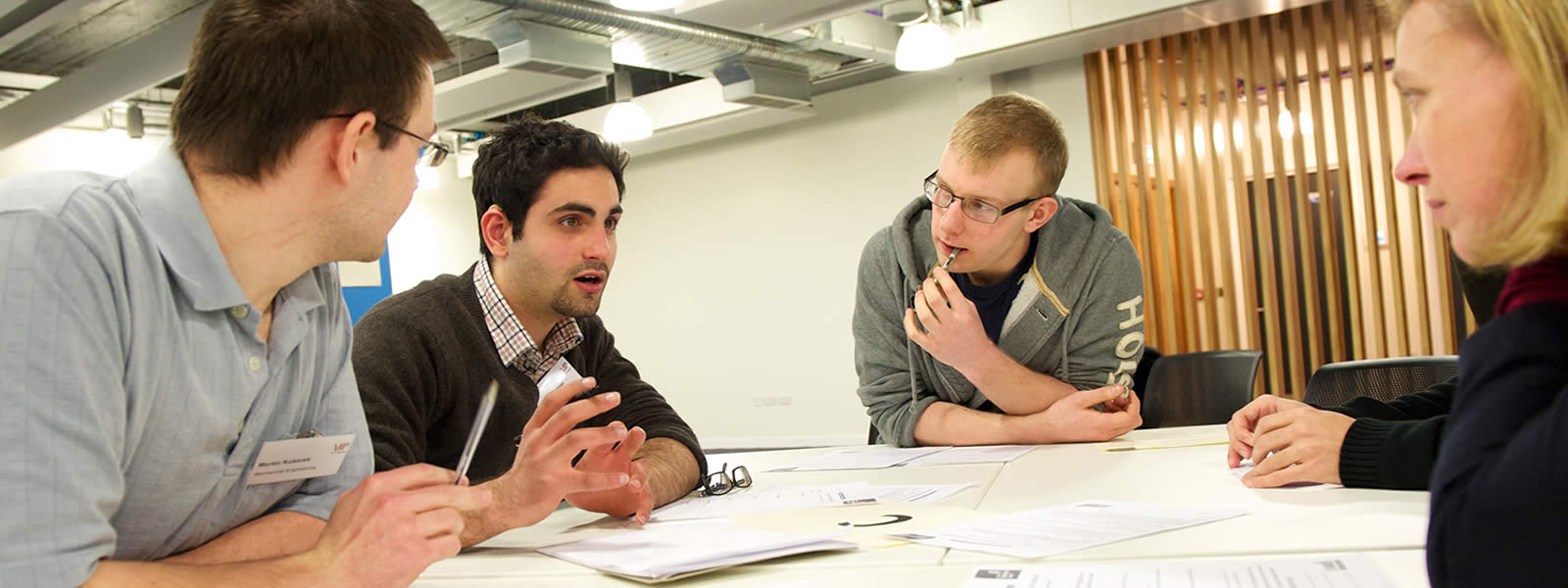Is this course right for me?
Target Audience: Research staff, academic staff and professional services staff
This is a live in-person session.
This is a set of two sessions - you must attend BOTH sessions.
Part 1: Equitable collaboration: 17 March 26 - 9.30 - 12.30
Collaborating across disciplines, departments and organisations is a great opportunity to produce research impact, contribute to the field and benefit from a range of perspectives and approaches. And, of course, it may also bring challenges. The expectations, assumptions and skills sets may be as diverse as the group. So, how you can start to construct a working environment that supports your effective collaboration?
Part 2 : Creating a constructive culture - 19 March 26 - 9.30 - 12.30
Many of the challenges people face in collaborations centre on interaction and relationships, rather than the technicalities and know-how of the people involved. It’s rare that anyone wants to create misunderstandings or slip-ups in communication, but these things happen all the same. So, instead, how can we communicate well, create relationships that are effective, and, on these building blocks, shape a culture that allows everyone to be involved and valued?
Delivered by;
Jamie McDonald, jmcd@jmcd.co.uk
Course Outcomes/Objectives;
Part 1: Equitable collaboration:
By the end of this confidential and highly interactive workshop we will have:
- Considered the basis of your collaboration – what you’re all in it for
- Explored what works, and what doesn’t work, in collaborations, in your experience
- Examined behaviours people commonly use in teams and how they affect your collaboration
- Begun to shape a document and agreement about how your collaboration may run
- Used a number of tools to help articulate clear requests and feedback
- Applied all of the above to real situations and in the company of your peers and colleagues
Part 2: Creating a constructive culture
By the end of this confidential and highly interactive workshop we will have:
- Explored the relevance of solution-focused conversation
- Understood common unhelpful, and helpful, behaviours in relationship
- Considered the impact of culture and norms on behaviour
- Considered how to communicate transparently
- Applied the above to real situations and in the company of your peers and colleagues
Accesibility
We are committed to ensuring our events and courses are accessible to all staff. If you feel you have a disability, health issue, or neurodivergent condition that may affect your ability to access, participate or engage in this course, please get in touch with us at osdu@strath.ac.uk to discuss your specific support requirements.
On-campus activity
- There will be audience participation
- You are asked to attend both sessions
- There may be a break
- The session is relaxed – this means you can stretch, move around, stim etc.
- In line with current University health and safety guidance, attendees may wish to use face masks. The room will have either mechanical ventilation or passive ventilation (i.e. open windows)
- Digital copies of resources will be emailed to participants where required
- Please contact osdu-equity@strath.ac.uk to discuss any further access requirements
This is a highly interactive, reflective and experiential workshop. Please come along ready to contribute constructively throughout. Thanks!
Delivered By: Jamie McDonald
Prerequisites
You are required to attend BOTH sessions. You will have specific collaborations in mind to which you plan to apply the learning from the workshops.Cancellation Policy
When applying for a course, you should note that there will be a £50* charge to your Department / School if you do not attend your place on the course. There will be no charge as long as you cancel your booked place before the event or notify our staff at osdu@strath.ac.uk that you can no longer attend.
A Department / School is welcome to send someone else in your place if they wish without incurring a charge, providing that person has the necessary prerequisites for the course. In the case of courses split over more than one day, you are expected to attend ALL parts of the course.
*This is the standard charge for cancellation or non-attendance of a course of 1-day duration or less. For some courses, there may be a higher cancellation charge and if this is the case you will be advised of this at the time of booking.
